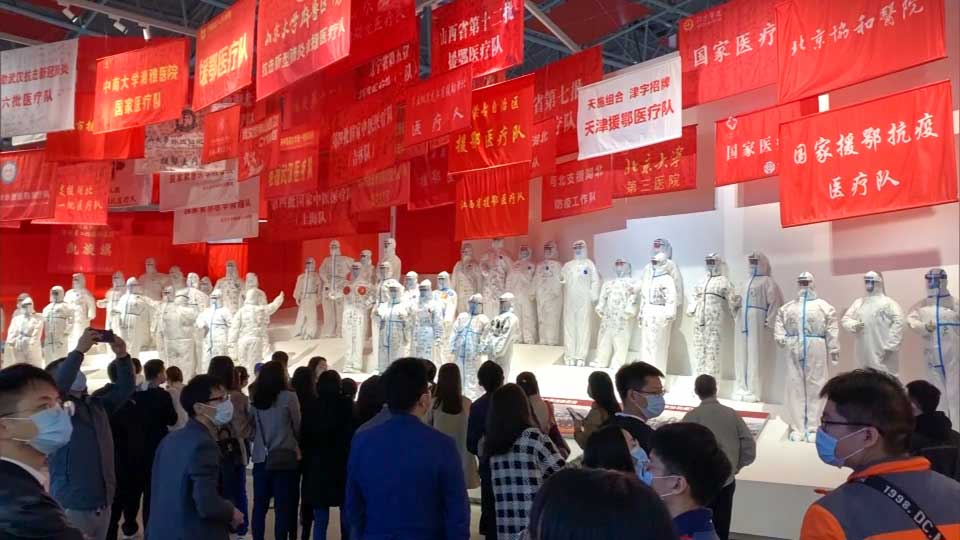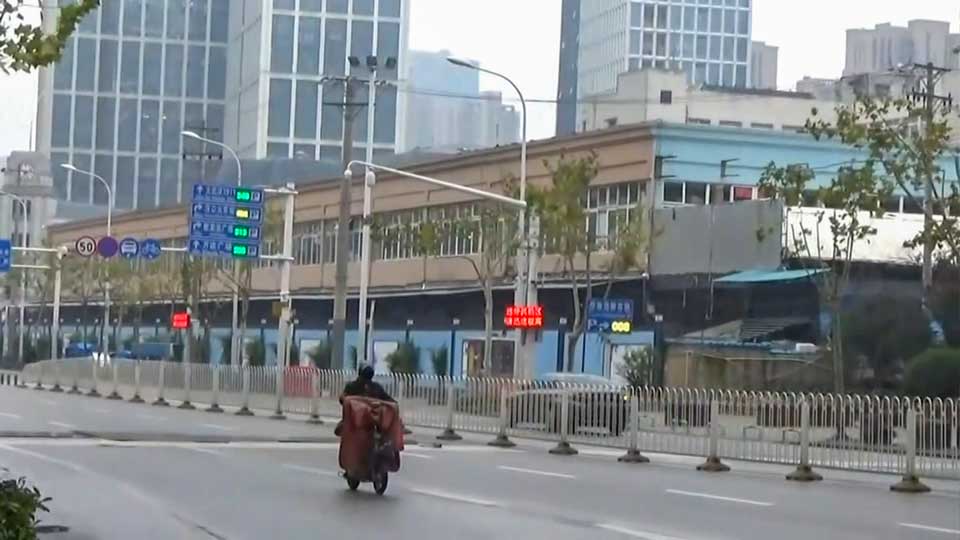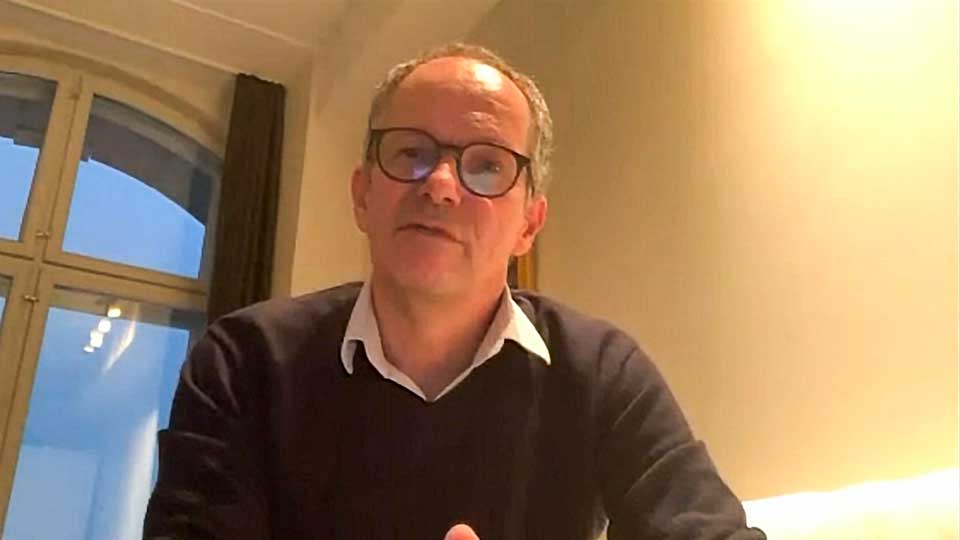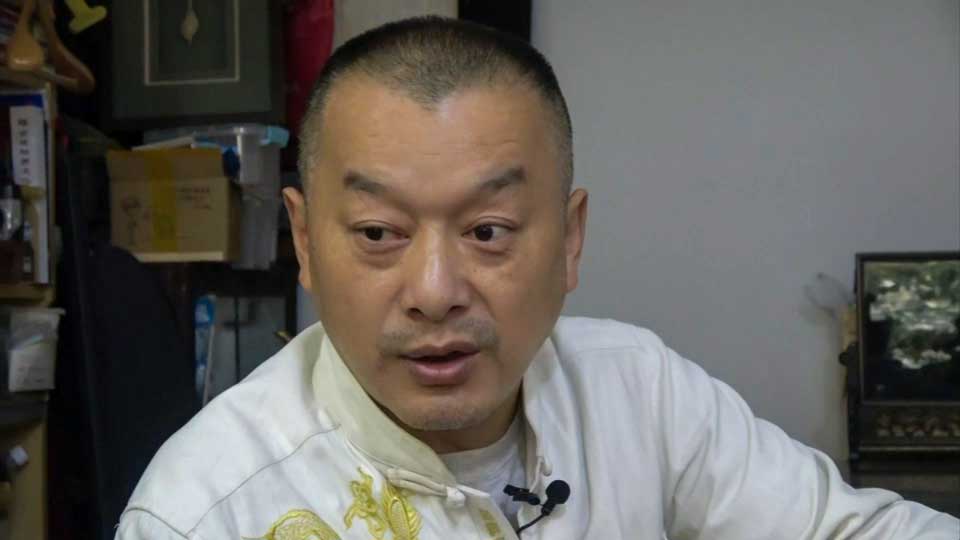Museums across Hubei Province have been holding special exhibitions looking back on the fight against the coronavirus. Outside one exhibition site that was used as a temporary facility for treating patients is a signboard reading, "A great victory has been achieved by party leaders united under Xi Jinping."
Among the exhibits inside the building are clothes worn by medical workers and pictures of military personnel working to build temporary hospitals.
One visitor said he was moved and that he wanted to pay tribute to the "heroes who stood up against the virus."
A university student said she heard that the coronavirus was present in the United States in December last year. She said calling it "the Wuhan virus" is discrimination against China.

No progress in onsite probe
The World Health Organization is keen to find out what really happened in the early days of the outbreak, and wants to determine the origin of the virus and how it was transmitted to humans. The WHO sent two officials to Beijing in July to prepare for a detailed onsite survey by an international team. But the probe in Wuhan has yet to happen.
In February, experts from the Chinese government cited the possibility that the virus originated from bats in China and was transmitted to humans via pangolins. More recently, though, the virus has been found in food imported by China. China's state-run media reports this suggests the virus may have been brought to China from abroad.
US President Donald Trump suggested in April that the virus may have spread from a lab in Wuhan. China responded sharply, leading to an exchange of harsh words between the two nations.
WHO Director-General Tedros Adhanom Ghebreyesus referred to the deployment of the survey team at a news conference on Monday. "We are planning, and we are hoping to be on the ground as soon as possible," he said, but didn’t specify exactly when the team will be sent to Wuhan.

Expert: Logical to consider China the origin
Dr. Peter Ben Embarek, an expert on animal-derived infectious diseases at the WHO, is investigating the origin of the coronavirus. He was one of the officials sent to Beijing in July. In an interview with NHK, he said that it is logical to think the virus originated somewhere in China.
Ben Embarek said that a virus similar to Covid-19 was found in a bat cave in China’s Yunnan Province in 2013. He said it was not exactly the same as Covid-19, but was the closest among all known viruses.
Ben Embarek said that the investigation should focus on Wuhan and surrounding areas first and stressed the need to examine more closely the first-reported cases there. He also said that, given China’s advanced public-health system, there should be a lot of samples from last year. He said that if researchers could look at these samples, they should be able to trace the virus.

State information control
Zhang Yi, who lives in Wuhan, contacted friends via social media to share the situation in the city with the world. He says three of those friends were detained by authorities.
Among them was Chen Qiushi, who went to Wuhan before the lockdown. As a citizen journalist, he took videos of chaotic scenes in the city’s hospitals and posted them online before suddenly going missing in early February. It has been confirmed that he is now back in Qingdao, Shandong Province, where his family lives, but he is said to be under close surveillance.
Another friend of Zhang, Fang Bin, reported on a series of deaths believed to be COVID-19 patients from hospitals in Wuhan. He, too, was detained by authorities and has been missing ever since.

Zhang says the information control and cover-up by authorities exacerbated the spread of the virus. He is calling for the release of his friends.
"In an authoritarian society like China, authorities use any measures they want if they work in favor of the government," he says. "I want as many people as possible to know about those who have been detained."




